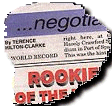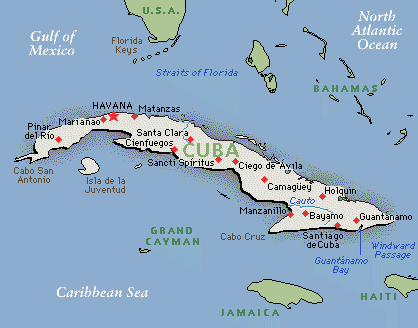

The September 1991 collapse of the Soviet union has led to a sharp downfall in the economy of Cuba. This event, together with the U.S. embargo, has thrust the Caribbean island into a state of despair. The loss of trade subsidies from the former U.S.S.R. has meant a cut-off in supplies of fuel, raw materials, machine parts and technological products. This has crippled the economy to the extent that President Fidel Castro instituted in 1989-1990 what he called "a Special Period in a Time of Peace." But it seems that this policy of tough austerity measures is not enough to rescue the ailing economy: "After more than 30 years of Soviet-style socialism, life has turned much worse during ....the ‘Special Period'." The rationing of food items, the shortage of necessities such as soap and toilet paper, the shut down of factories and the lack of harvest distribution have caused severe inconveniences for the Cuban people.These events were enough to raise questions concerning the ability of Castro to survive this period. However, the Cuban leader has remained steadfastly in his position. He has survived primarily because of the great adulation he has received from his loyal supporters. He has also been able to work up patriotic fervour in combating "injustice and exploitation... evil and good... the moral and immoral." Over the past three decades, Cubans have been provided with excellent health care and education, but these have come amid severe shortages in other provisions, in particular food.
The Cuban economic problems have been exacerbated by the 35-year old U.S. embargo. In its original ( 1961 ) form, the embargo "prohibited all commercial, financial and trade transaction by all persons subject to U.S. jurisdiction, which includes United States citizens, permanent residents, wherever they are located, all people and organizations physically located in the United States and all branches and subsidiaries of U.S. organizations throughout the world." The embargo was strengthened through the Cuban Democracy Act ( 1990).
Then, on February 25 1996, after repeated warnings against violation of Cuban air space, Cuban air force jets shot down two light aircraft belonging to a Cuban exile group called "Brothers to the Rescue", based in Miami, Florida. The incident, which occurred during a U.S. election year, prompted the U.S. congress into passing The Cuban Liberty and Solidarity Act. Among the aims of this powerful measure is the curbing of foreign investment in Cuba. This Act will most likely strain foreign relations between the United States and Cuba even further and can best be described as ominous
In this paper, an attempt will be made to assess the current economic and social situation in Cuba, along with the influence of external policies. The initial sections aim to provide the reader with a historical background of Cuba and the Castro government as it relates to the current situation. The title section will look at events during the last five years in the areas of economy, social and international ( mostly American) relations. Finally, an effort will be made to look at the prospects for Cuba in each of these areas with the intention of coming to some conclusion and making recommendations.
|
Cuba Thesis Historical
Background of Cuba before Castro Historical
Background of Cuba before Castro Related links: José
Martí
|
|





